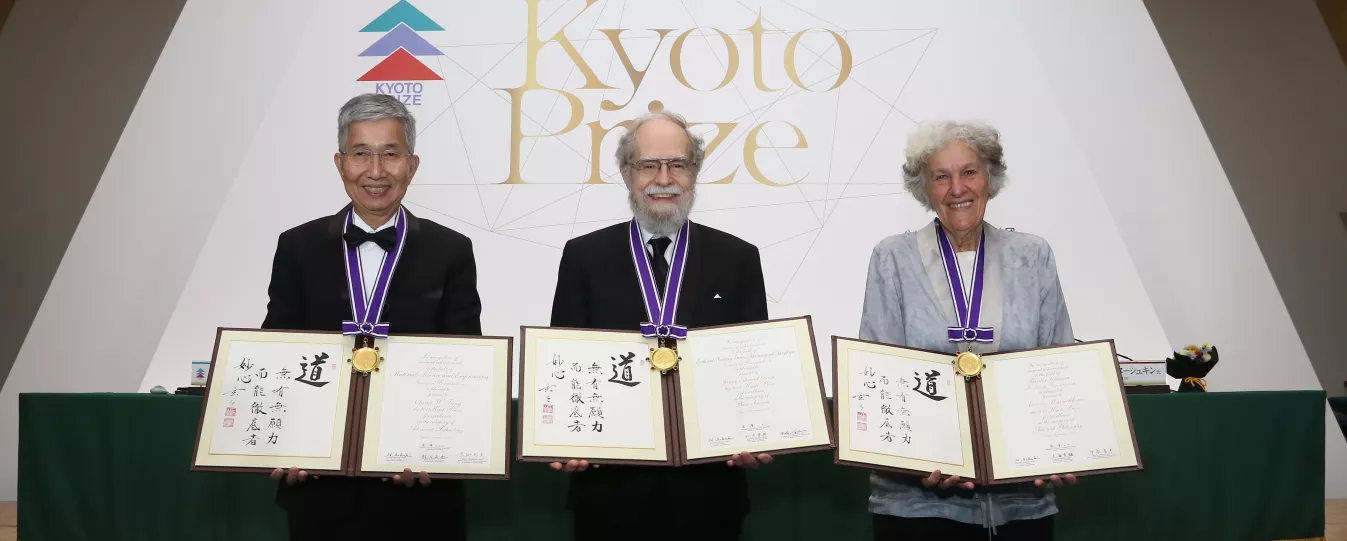Developing the technology behind the most advanced display screens, including those we keep in our pockets; creating the largest, most detailed and most often cited astronomical survey that has ever existed and that is helping expand our knowledge of the universe; and redefining the way traditional theatre works, using a novel and unique approach based on collective organisation and freedom of the creative process.
The Kyoto Prize Laureates have introduced scientific discoveries and artistic innovations that have benefited society as a whole, and this process, their story and inspiration will be the protagonist of the Kyoto Prize at Oxford 2021.
Registration is now open for this year’s edition, hosted virtually on 11 May by the Blavatnik School of Government in partnership with the Inamori Foundation.
After the COVID-19 pandemic forced to cancel all Kyoto Prize events in 2020, the Kyoto Prize at Oxford has temporarily moved online to celebrate the intellectual and creative work of the 2019 Kyoto Prize Laureates.
The events will be a mixture of live and recorded material, including some of the Laureates’ speeches from the Kyoto Prize ceremony in November 2019. All will offer a live exclusive Q&A with the Laureate, with the opportunity for participants to ask questions. The Laureates will also take part in a public panel discussion, in which they explore themes innovation and achieving excellence within their individual disciplines and beyond.
Follow the links below to register for the public lectures and panel discussion.
- Mapping the universe – James Gunn (2019 Kyoto Prize Laureate for Basic Sciences)
Astrophysicist James Gunn discusses his pioneering work on understanding the universe through astronomical surveys.
- A life in theatre – Ariane Mnouchkine (2019 Kyoto Prize Laureate for Arts and Philosophy)
Theatre director Ariane Mnouchkine has produced masterpieces with historical and political themes over many decades. In her lecture, she reflects on what it means to be a Kyoto Prize Laureate.
- The science of organic light-emitting diodes – Ching Tang (2019 Kyoto Prize Laureate for Advanced Technology)
Chemist Ching Tang’s discovery of organic light-emitting diodes (OLEDs) revolutionised the field of display technology and led to their widespread use in phones, cameras, TVs, wearable devices and more. He discusses the story behind their invention and future prospects for OLED technology.
The three Laureates share their perspectives on achieving excellence and instigating change within their disciplines and beyond with Ngaire Woods, Dean of the Blavatnik School of Government.
As part of the Laureates's engagement with the University of Oxford's academic community, The Oxford Research Centre in the Humanities (TORCH) will host Ariane Mnouchkine in conversation with theatre director Katie Mitchell and TORCH's director Wes Williams on Wednesday 12 May - visit TORCH's website for more details.
